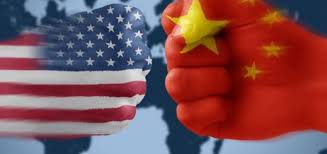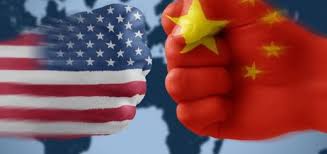
China has urged the U.S. to correct its “mistaken methods” in relation to the later imposing hefty anti-dumping duties ranging from 97 percent to 162 percent on Chinese aluminum foil, even as the second largest economy in the world has said that it was “strongly dissatisfied” with the U.S. over the anti-dumping decision.
Chinese aluminum producers had been accused of dumping foil into the U.S. market at below cost or fair market value by the U.S. aluminum foil makers who also filed a complaint with the Commerce Department and the preliminary ruling on Friday is being seen as a victory for them.
The Commerce Department said that it would issue its final determination for the duties on Feb. 23 and according to it, U.S. aluminum foil imports from China were valued at $389 million, in 2016.
With the intention of putting high duties on Chinese goods, the United States was still using “discriminatory” surrogate country pricing methods, alleged Chinese Commerce Ministry official Wang Hejun in a statement late on Saturday.
Wang said that by the use of these methods, the United States is damaging the authority of multilateral trade rules, and is also harming the interests of Chinese companies.
“We urge the United States to earnestly fulfill its international obligations, and take real action to correct its mistaken methods,” Wang said, adding that China would take steps to protect Chinese companies’ legal rights.
Allowing other WTO members to use a third country’s prices to assess whether Chinese goods were being dumped is the now expired clause in China’s 2001 World Trade Organization accession deal made years ago that the United States has used in the aluminum case to impose hefty duties, Beijing complains.
its standard methodology for determining dumping duties against non-market economies was used by the United States which formed the basis for the evidence of the imposition of the hefty tax, the U.S. Commerce Department said.
Given the Chinese government’s control over the price and output decisions of local Chinese enterprises and other factors, such as the extent to which its currency is convertible, China failed the test of whether it operates as a market economy, and hence such measures were needed to be used against China, Washington has determined in the past.
Enforcement of trade laws has been made a top priority by the U.S. President Donald Trump’s administration.
Up 61 percent from the previous year, it initiated 77 anti-dumping and countervailing duty investigations from Jan. 20, the day Trump took office, through Oct. 25, the Commerce Department said.
(Source:www.reuters.com)
Chinese aluminum producers had been accused of dumping foil into the U.S. market at below cost or fair market value by the U.S. aluminum foil makers who also filed a complaint with the Commerce Department and the preliminary ruling on Friday is being seen as a victory for them.
The Commerce Department said that it would issue its final determination for the duties on Feb. 23 and according to it, U.S. aluminum foil imports from China were valued at $389 million, in 2016.
With the intention of putting high duties on Chinese goods, the United States was still using “discriminatory” surrogate country pricing methods, alleged Chinese Commerce Ministry official Wang Hejun in a statement late on Saturday.
Wang said that by the use of these methods, the United States is damaging the authority of multilateral trade rules, and is also harming the interests of Chinese companies.
“We urge the United States to earnestly fulfill its international obligations, and take real action to correct its mistaken methods,” Wang said, adding that China would take steps to protect Chinese companies’ legal rights.
Allowing other WTO members to use a third country’s prices to assess whether Chinese goods were being dumped is the now expired clause in China’s 2001 World Trade Organization accession deal made years ago that the United States has used in the aluminum case to impose hefty duties, Beijing complains.
its standard methodology for determining dumping duties against non-market economies was used by the United States which formed the basis for the evidence of the imposition of the hefty tax, the U.S. Commerce Department said.
Given the Chinese government’s control over the price and output decisions of local Chinese enterprises and other factors, such as the extent to which its currency is convertible, China failed the test of whether it operates as a market economy, and hence such measures were needed to be used against China, Washington has determined in the past.
Enforcement of trade laws has been made a top priority by the U.S. President Donald Trump’s administration.
Up 61 percent from the previous year, it initiated 77 anti-dumping and countervailing duty investigations from Jan. 20, the day Trump took office, through Oct. 25, the Commerce Department said.
(Source:www.reuters.com)














